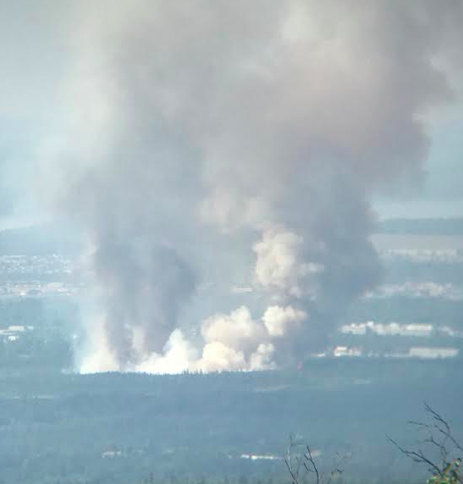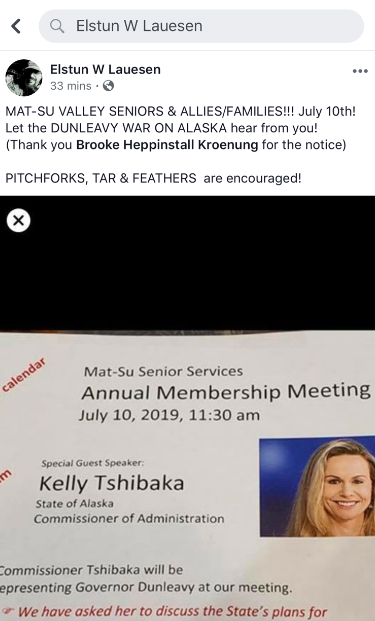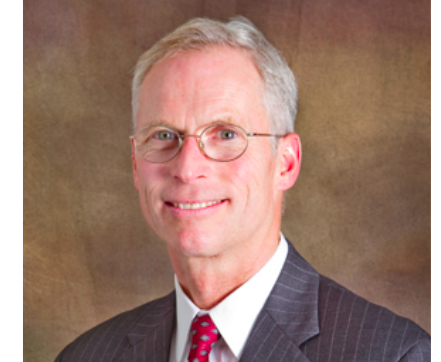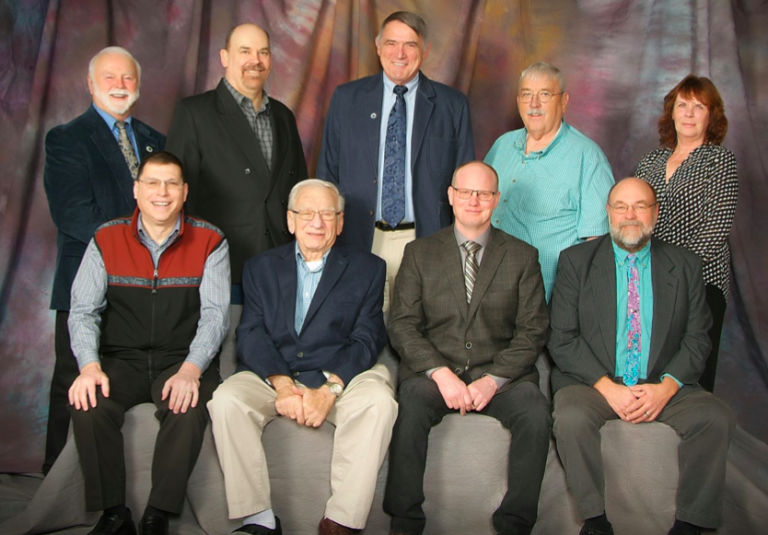THE UNIVERSITY NEEDS LEADERSHIP NOW. CAN HE BE THAT LEADER?
University of Alaska President Jim Johnsen announced on Monday that 2,500 staff and faculty were receiving 10-day furlough notices as a result of the budget cuts from the State of Alaska.
Gov. Michael Dunleavy vetoed $130 million from the university system on top of the $5 million already cut by the Alaska Legislature.
Johnsen — and all UA administrators — have known this was coming since February, when the governor submitted his budget to the Legislature.
[Read: University professor gets students to write protesting budget — for credit]
Dunleavy has cut state spending by 12.9 percent this year, but the budget cuts to the university system are 17-18 percent of the university system’s overall budget. A bigger hit, to be sure, but with plenty of notice.
A SPENDING MACHINE
Last year, the University received an unrestricted general fund (UGF) appropriation of $327 million. It allocated this appropriation to its three core services as follows:

As the table shows, the University of Alaska has access to non-UGF sources in the form of federal funds, tuition (which is designated general funds – DGF), fees and receipts (DGF/Other), as well as donations.
The University also has reserve funds and an endowment. The FY2019 Management plan was 888.5 million — over three quarters of a billion dollars being spent for 17,555 students — more than $50,000 per student.
The University is and has been heavily dependent on state funding, far more than its peers, and far more than what is needed to account for the higher cost of living and expenses in Alaska. The State of Alaska provides more than double the per-student funding, as compared to Lower 48 state-funded universities.
The cuts to the university system brings the per-student subsidy down to 145 percent of the national average.
WHO MOVED HIS CHEESE?
Such cuts — 17 percent is not insignificant — demand reimagining the university system and its 17 campuses, restructuring, and leadership. Does Johnsen have what it takes?
When Johnsen was hired in 2015, he appeared to realize that the spending couldn’t continue. He told the Alaska Dispatch News that one of his missions was to diversify revenue streams, and he acknowledged that getting 45 percent of the systems funds from the Legislature was problematic:
“We rely for 45 percent of our revenue on the state Legislature and, of course, that revenue source is in trouble, given low oil prices and gradually declining productivity. That’s a challenge for us, so we’ve really got to try to diversify our revenue sources as much as we possibly can. At the same time, we’ve got to grow where we’re strong. The idea that we’re going to just sort of hunker down and take incremental cuts is, I think, irresponsible. There are so many strong programs at the university linked up with powerful and compelling needs of the state. Health care workforce. Teachers. … We’ve got to double down on that. We’re producing something like only 25 percent of the teachers hired each year. We’ve got to really step that up,” he said.
Four years later under his leadership, the teaching program at the University of Alaska Anchorage lost its accreditation. Graduation rates are at 10 percent for four-year students, and enrollment is down.
Johnsen, rather than pivot and look for ways to fundamentally change the business model, persisted with misinformation, using precious treasure and time to fight the inevitable. He has told the media repeatedly this year that the governor’s budget was cutting 45 percent of the system’s entire budget.
That’s not so and he knew it wasn’t so. Even after challenged, he persisted in telling the lie. The $135 million cut is only 17-18 percent of the system’s entire budget.
But the lie gets repeated around academia. Take a look at this story from a science blog, which says the cut is 40 percent of the university system’s entire budget:

While Johnsen has been battling with an expensive PR campaign, and asks the public to contact lawmakers to urge them to override the veto, he needs 45 of the 60 members of the House and Senate. That is a high hill to climb when his statements to the public have been less than truthful.
Then there’s the warning signs that have been showing up for years since he took over at the University of Alaska.
Since 2015, Moody’s credit rating services has downgraded the university after several years of warnings about the over reliance on State money:

Back in 2015, in answer to a question from the Alaska Dispatch News, Johnsen said the challenge of UA is a three-legged stool:
He said … “cost-effectiveness — we’ve just got to drive it. It’s one of our critical priorities. Access — whenever we have the opportunity to expand access, we expand access. And third, is quality. We can’t compromise quality. We’ve got to invest in quality because that’s why students will come here. It’s really all three of those. I would hope that students say, ‘Wow, it’s cost effective. It’s right here, I’ve got access and man, is it good.'”
Johnsen elaborated on efficiencies and cost savings in that interview:
“When you want to get specific, however, we’ve got to streamline processes and reduce costs, so that we can invest in our academic priorities. So sort of administrative streamlining — critical. It falls under the cost-effectiveness line. Teacher education, teacher education, teacher education — it’s just critical for us. … And then I’d say right off the top — very important — is how do we support the state? How do we support the state making very difficult decisions? That’s where ISER (UAA Institute of Social and Economic Research) falls in and providing our researchers to the state government. But we have to free up their time to do that. They have to be paid to do that. So that’s going to take some resources from us and perhaps from the state.”
But in 2019, Johnsen appears to be in full battle mode, refusing to transform an institution that has been losing students, has had its teaching program at UAA lose accreditation, and has not been producing nearly enough graduates.
“With a four year graduation rate of 8.0%, first-time students in the University of Alaska Anchorage class of 2013 who attended classes full-time were among the least likely in the nation to graduate on time. After six years, the graduation ratewas 31.0% and by 2017, 37.5% of this class had completed their degree,” according to CollegeFactual.com.
The question is: Can Johnsen lead this university into becoming a sustainable institution? Because he’s had four years to do so and he’s run out of runway.
























